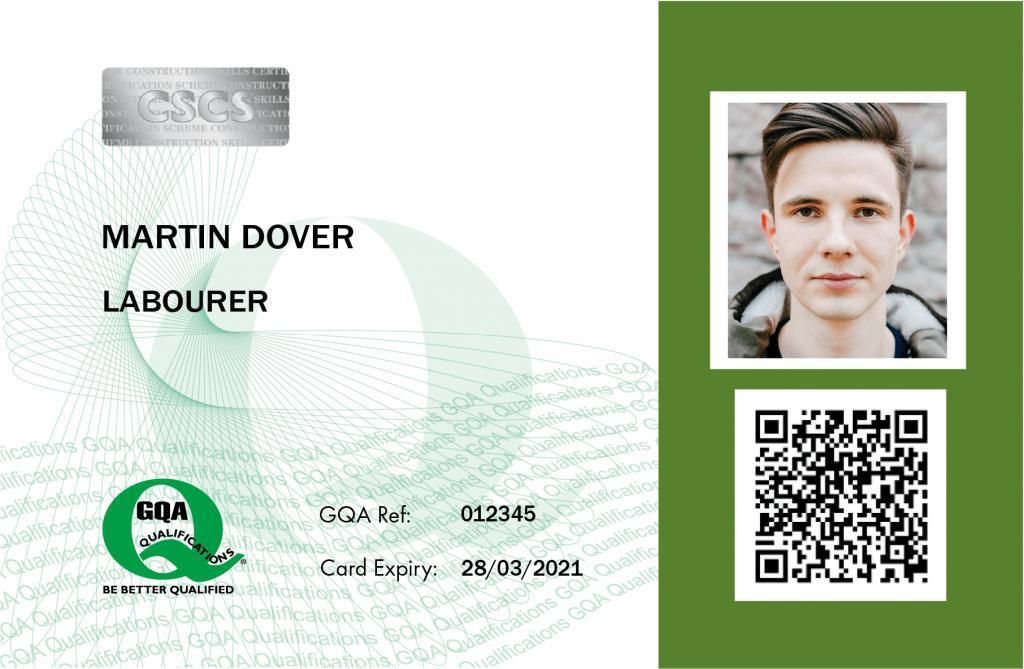
Mastering Leadership Effectiveness
Course ID: 2509080101278EGI
Course Dates : 08/09/25 Course Duration : 10 Studying Day/s Course Location: London, UK
Language: Bilingual
Course Category: Professional and CPD Training Programs
Course Subcategories: Leadership and Management Excellence
Course Certified By: * Projacs Academy
* Professional Training and CPD Programs
Certification Will Be Issued From :
KSA
Course Fees: £8,895.11
Vat Not Included in the price. VAT may vary depending on the country where the course or workshop is held.
Click to Pay
Date has passed please contact us Sales@e-s-hub.com
Course Information
Introduction
Leadership effectiveness is a cornerstone of organizational success, influencing everything from employee engagement to strategic execution. In an era where businesses face unprecedented levels of volatility, uncertainty, complexity, and ambiguity (VUCA), the ability to lead with clarity, empathy, and vision has become more critical than ever. This course addresses the growing demand for leaders who can navigate these challenges while fostering innovation and driving sustainable growth. By blending theoretical frameworks with practical tools, "Mastering Leadership Effectiveness" equips participants to transform their leadership capabilities into tangible results.
Research in leadership development consistently underscores the importance of adaptive and transformational leadership styles. These approaches emphasize emotional intelligence, resilience, and the capacity to inspire teams toward shared goals. Yet, many leaders struggle to bridge the gap between theory and practice. For instance, a recent study by Harvard Business Review revealed that only 15% of leaders feel confident in their ability to adapt their leadership style to diverse situations. This course aims to close that gap by providing actionable strategies rooted in proven methodologies such as Daniel Goleman’s Emotional Intelligence Framework and John Kotter’s Change Management Model.
The challenges facing modern leaders are multifaceted. From managing remote and hybrid teams to addressing issues of diversity, equity, and inclusion (DEI), leaders must balance competing priorities while maintaining team morale and productivity. Consider the case of Satya Nadella, CEO of Microsoft, whose focus on empathy-driven leadership revitalized the company’s culture and market position. His example illustrates how mastering leadership effectiveness can catalyze profound organizational change. Participants in this course will explore similar real-world scenarios to understand how effective leadership can drive both personal and organizational success.
For individuals, mastering leadership effectiveness translates into enhanced career prospects, greater influence within their organizations, and improved decision-making skills. Organizations, on the other hand, benefit from higher employee retention rates, increased innovation, and stronger alignment with strategic objectives. The ripple effect of strong leadership extends beyond immediate outcomes, fostering a culture of continuous improvement and accountability. By integrating insights from seminal works like Kouzes and Posner’s The Leadership Challenge and Peter Senge’s The Fifth Discipline , this course ensures participants are equipped with timeless principles alongside cutting-edge practices.
Despite the abundance of leadership resources available, there remains a notable gap in comprehensive, application-focused training programs. Many existing offerings either delve too deeply into abstract theories or fail to provide practical tools for implementation. This course bridges that divide by combining rigorous academic foundations with hands-on exercises, role-playing simulations, and peer-to-peer learning opportunities. Participants will leave not only with a deeper understanding of leadership dynamics but also with a personalized action plan tailored to their unique professional context.
Ultimately, "Mastering Leadership Effectiveness" is designed for those committed to elevating their leadership impact. Whether you are stepping into your first management role or seeking to refine your executive presence, this course offers a transformative journey. Through a blend of expert instruction, collaborative learning, and reflective practice, participants will emerge as leaders capable of inspiring trust, driving performance, and shaping the future of their organizations.
Objectives
By attending this course, participants will be able to:
Analyze the core principles of adaptive and transformational leadership and apply them to real-world challenges.
Evaluate the role of emotional intelligence in fostering high-performing teams and implement strategies to enhance interpersonal relationships.
Design inclusive leadership practices that promote diversity, equity, and inclusion within teams and organizations.
Implement change management frameworks to guide teams through periods of transition and uncertainty.
Assess individual leadership strengths and weaknesses using validated assessment tools and develop a personalized growth plan.
Apply conflict resolution techniques to manage interpersonal disputes and foster collaboration.
Create a strategic communication plan to align team efforts with organizational goals.
Who Should Attend?
This course is ideal for:
Mid-level managers, team leaders, and supervisors seeking to enhance their leadership capabilities.
HR professionals tasked with developing leadership pipelines within their organizations.
Consultants and coaches specializing in organizational development and leadership training.
Educators and trainers responsible for designing leadership curricula.
These groups will find the course invaluable due to its emphasis on practical applications and evidence-based strategies. While prior leadership experience is beneficial, the course is structured to accommodate intermediate learners who possess foundational knowledge but wish to deepen their expertise.
Training Method
• Pre-assessment
• Live group instruction
• Use of real-world examples, case studies and exercises
• Interactive participation and discussion
• Power point presentation, LCD and flip chart
• Group activities and tests
• Each participant receives a 7” Tablet containing a copy of the presentation, slides and handouts
• Post-assessment
Program Support
This program is supported by:
* Interactive discussions
* Role-play
* Case studies and highlight the techniques available to the participants.
Daily Agenda
The course agenda will be as follows:
• Technical Session 08.30-10.00 am
• Coffee Break 10.00-10.15 am
• Technical Session 10.15-12.15 noon
• Coffee Break 12.15-12.45 pm
• Technical Session 12.45-02.30 pm
• Course Ends 02.30 pm
Course Outlines
Foundations of Leadership
Introduction to Leadership Effectiveness: Defining Key Concepts and Their Organizational Impact.
Overview of Leadership Theories: Trait Theory, Situational Leadership, Transformational Leadership.
The Role of Emotional Intelligence in Leadership: Understanding Self-Awareness and Empathy.
Self-Assessment Activity: Identifying Strengths and Development Areas Using Validated Tools.
Day 2:
Adaptive Leadership
Principles of Adaptive Leadership: Differentiating Between Technical Problems and Adaptive Challenges.
Case Study Analysis: Leading Through Uncertainty (e.g., Crisis Management During the Pandemic).
Tools for Diagnosing Adaptive Challenges Within Teams and Organizations.
Group Exercise: Designing Adaptive Solutions for Hypothetical Scenarios.
Day 3:
Emotional Intelligence and Team Dynamics
Core Components of Emotional Intelligence: Self-Regulation, Motivation, and Social Skills.
Building Trust and Psychological Safety Within Teams.
Strategies for Managing Interpersonal Relationships and Resolving Conflicts.
Role-Playing Simulation: Practicing Empathetic Communication Techniques.
Day 4:
Diversity, Equity, and Inclusion (DEI) in Leadership
The Business Case for DEI: Enhancing Innovation, Engagement, and Performance.
Unconscious Bias Training: Recognizing and Mitigating Implicit Biases.
Designing Inclusive Leadership Practices to Foster Belonging.
Panel Discussion with DEI Experts: Sharing Best Practices and Lessons Learned.
Day 5:
Change Management Frameworks
Introduction to Change Management Models: Kotter’s 8-Step Process and Lewin’s Change Model.
Overcoming Resistance to Change: Strategies for Effective Stakeholder Engagement.
Communicating Change: Crafting Clear and Compelling Messages.
Workshop: Developing a Change Management Plan for a Real-World Scenario.
Week 2
Day 6:
Conflict Resolution and Negotiation Skills
Understanding Conflict Styles: Avoidance, Collaboration, Accommodation, and Compromise.
Techniques for De-escalating Tensions and Facilitating Constructive Dialogue.
Negotiation Fundamentals: Preparing, Listening, and Finding Win-Win Outcomes.
Interactive Exercise: Simulating Conflict Resolution in High-Stakes Situations.
Day 7:
Strategic Communication and Influence
Principles of Persuasive Communication: Building Credibility and Clarity.
Aligning Team Efforts with Organizational Goals Through Strategic Messaging.
Leveraging Storytelling as a Leadership Tool to Inspire Action.
Peer Feedback Session: Refining Personal Communication Strategies.
Day 8:
Building Resilient and High-Performing Teams
Characteristics of High-Performing Teams: Trust, Accountability, and Shared Vision.
Strategies for Fostering Team Resilience in Times of Stress or Uncertainty.
Performance Metrics: Measuring and Sustaining Team Success.
Group Project: Designing an Action Plan to Elevate Team Performance.
Day 9:
Compliance Requirements and Ethical Leadership
Navigating Legal and Ethical Standards in Leadership Decision-Making.
Promoting Ethical Behavior: Setting the Tone at the Top.
Addressing Compliance Challenges in Global and Diverse Work Environments.
Case Study Analysis: Learning from Ethical Failures in Leadership.
Day 10:
Personal Leadership Growth and Future Trends
Creating a Personalized Leadership Development Plan: Setting SMART Goals.
Exploring Emerging Trends in Leadership: AI, Remote Work, and Sustainability.
Reflective Exercise: Integrating Course Learnings into Professional Practice.
Closing Session: Sharing Insights, Commitments, and Next Steps for Continuous Growth.



















































